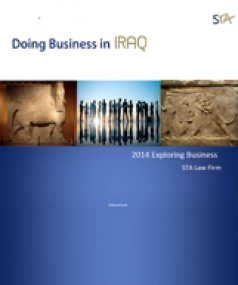Arbitration Framework at Abu Dhabi Global Markets
When will mankind be convinced and agree to settle their difficulties by arbitration? Benjamin Franklin
 The Abu Dhabi Global Market (ADGM) launched its arbitration centre in 2018. The ADGM arbitration centre is equipped to resolve disputes between parties through mediation or arbitration. The launch of the ADGM arbitration centre reinforces the attractiveness of ADGM as a venue for arbitration, additionally to the establishment by the International Chamber of Commerce of its representative office in the Middle East within the geographic region of ADGM. ADGM may be a financial-free zone located in the United Arab Emirates. It is Abu Dhabi’s first financial free zone in Abu Dhabi and the second financial free zone in the UAE. Foreign parties are interested in the ADGM for a couple of reasons including the use of the English language to conduct proceedings in the ADGM Courts, application of English common law, and adoption of arbitration regulations 2015 supported by UNCITRAL Model Law on Arbitration. The ADGM stated its operations pursuant to Abu Dhabi Law No. 4 of 2013 and Federal Decree No. 15 of 2013.
The Abu Dhabi Global Market (ADGM) launched its arbitration centre in 2018. The ADGM arbitration centre is equipped to resolve disputes between parties through mediation or arbitration. The launch of the ADGM arbitration centre reinforces the attractiveness of ADGM as a venue for arbitration, additionally to the establishment by the International Chamber of Commerce of its representative office in the Middle East within the geographic region of ADGM. ADGM may be a financial-free zone located in the United Arab Emirates. It is Abu Dhabi’s first financial free zone in Abu Dhabi and the second financial free zone in the UAE. Foreign parties are interested in the ADGM for a couple of reasons including the use of the English language to conduct proceedings in the ADGM Courts, application of English common law, and adoption of arbitration regulations 2015 supported by UNCITRAL Model Law on Arbitration. The ADGM stated its operations pursuant to Abu Dhabi Law No. 4 of 2013 and Federal Decree No. 15 of 2013.
Arbitral Jurisdiction
The ADGM adopted the ADGM Arbitration Regulations in 2015 which are called ADGM Arbitration Regulations. It is like the UNCITRAL Model Law on International Commercial Arbitration. The ADGM Arbitration rules govern arbitrations conducted in the ADGM and it also enforces arbitral awards within the ADGM Courts. Those arbitral awards will act because of the supervisory courts with relation to ADGM-seated arbitrations.
The ADGM Arbitration Regulations apply to arbitrations
- Based on the ADGM
- As per Article 8 of the ADGM Regulations the arbitration agreement expressly provides for the applying of the ADGM Arbitration Regulations.
- The ‘seat’ is the legal seat of the arbitration designated by the parties to the arbitration agreement or by the arbitral tribunal or any institution or person vested by the parties with powers in that regard as mentioned in Article 33 of the ADGM Regulations.
The ADGM Arbitration Regulations establish the ADGM as a seat of arbitration for the disputes relating to the ADGM and for non-ADGM disputes. Parties can freely choose the ADGM as the seat of arbitration and the ADGM Arbitration Regulations because the procedural law of the arbitration.
Foreign Awards and Judgments
 Foreign parties find the ADGM Courts as an attractive jurisdiction for enforcing their foreign awards and judgments. The ADGM Courts signed two MoUs for cooperation in legal and judicial matters with local and federal governmental bodies. The ADGM Courts have an MoU with the Abu Dhabi Judicial Department and UAE Ministry of Justice which encourages judicial cooperation in Legal and Judicial Matters. The MoU will ensure the recognition and enforcement of judgments, decisions, orders, and arbitration awards.
Foreign parties find the ADGM Courts as an attractive jurisdiction for enforcing their foreign awards and judgments. The ADGM Courts signed two MoUs for cooperation in legal and judicial matters with local and federal governmental bodies. The ADGM Courts have an MoU with the Abu Dhabi Judicial Department and UAE Ministry of Justice which encourages judicial cooperation in Legal and Judicial Matters. The MoU will ensure the recognition and enforcement of judgments, decisions, orders, and arbitration awards.
The UAE is involved with the New York Convention on the Recognition and Enforcement of Arbitral Awards 1958 otherwise known as the New York Convention. The New York Convention likewise binds the ADGM since it is part of the UAE. The ADGM Courts have also signed a number of worldwide MoUs that accommodate enforcement of judgments.
The ADGM Courts have entered into an international Memorandum of Understandings with the Commercial Court of Queens Bench Division, England and Wales, with the Supreme Courts of New South Wales, Republic of Singapore, the Federal Court of Australia, and the High Court of Hong Kong.
Article 170 of the ADGM Court Regulations states that, when the UAE entered into an applicable treaty with a foreign country for the mutual recognition and enforcement of judgments, the ADGM Courts must stick on with the terms of such treaty, recognizes and enforces judgments rendered by that foreign country.
If there is no such treaty then Article 171.1 of the ADGM Court Regulations gives the authority to the Chief Justice of the ADGM Court to be satisfied that significant correspondence of treatment will be guaranteed regarding the recognition and enforcement in that foreign country of the judgments of the Courts may order the courts of the foreign country to be recognized as foreign courts. Article 180 of the ADGM Court Regulations expands the application of Articles 170 and 171 to arbitral awards that are enforceable in a similar manner as a court judgment as per material regulations.
Modifications to the UNCITRAL Model Law
The ADGM Board implemented a list of modifications to the UNCITRAL Model Law. The Significant modifications are as follows:
- Confidentiality and privacy
The award relating to the arbitral proceedings is confidential and cannot be disclosed to a third party. All arbitration-related matters and the proceedings are heard in closed court.
- Third parties
The ADGM Court or the arbitral institution can join the third party to the arbitration. The third party need not be a party to the arbitration agreement and does not require the consent of other parties. The criteria are
- a request created by a party to the arbitral proceedings
- the third party got to offer his consent in writing
- it is within the interests of justice to permit the joinder
- Waiver of right
The Regulations state that the parties in the arbitration agreement or by a written agreement waive fully the right to bring an action for setting aside.
 Conclusion
Conclusion
The enactment of the Arbitration Regulations is an important milestone for ADGM. ADGM is committed to providing clear, transparent, regulations to an international standard which leads to the most modern and progressive arbitration laws in the Middle East.
 English
English
 عربي
عربي Русский
Русский 官话
官话 português
português
 Türk
Türk 




